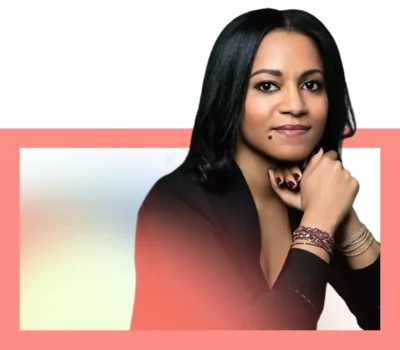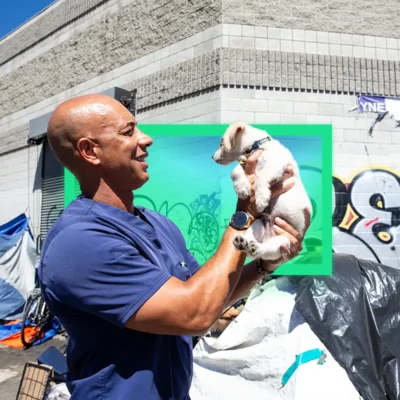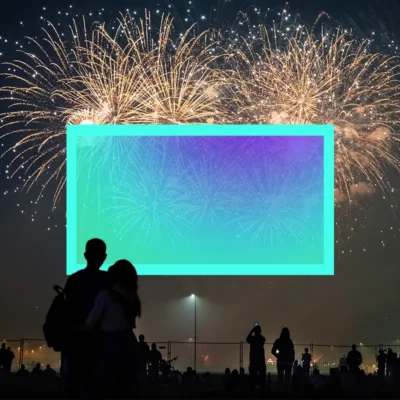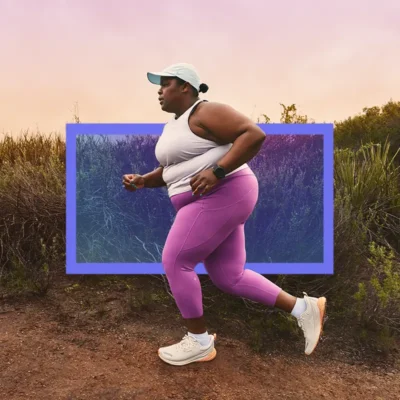Home will be with me wherever I go
As the daughter of UN diplomat, Nadia Owusu grows up across several worlds. Trailing her father from Africa to Europe before moving to the United States for university, Nadia grapples with her fractured identity. But when Nadia returns to her father’s village in Ghana, she finds an unexpected and affirming answer to who she is.
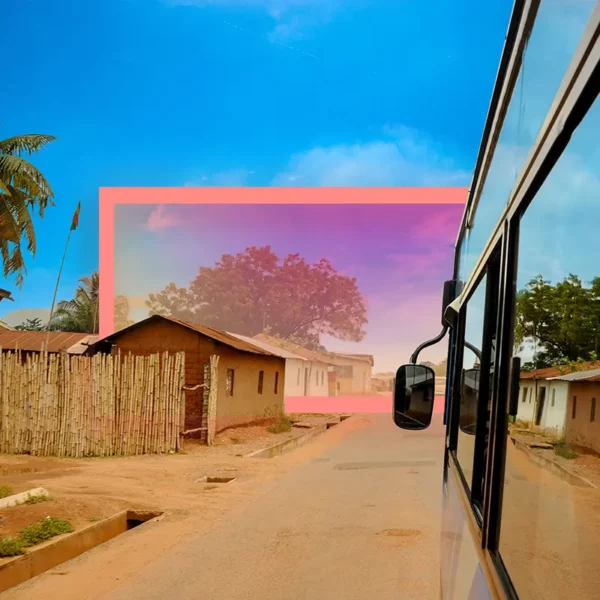
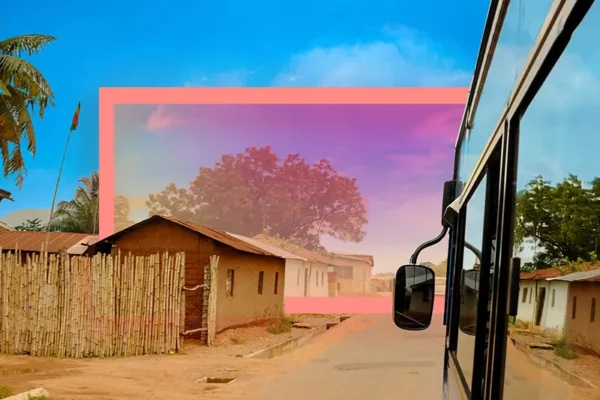
Table of Contents:
Transcript:
Home will be with me wherever I go
NADIA OWUSU: The scenery of the city fades into the background as the bus pulls onto a copper-colored road. Large swaths of vivid green forest shadow us on both sides of the highway, shrouded in mist. Every once in a while, someone emerges from the bushes carrying a bucket of water up to the roadside. The lush forest reminds me of the Ashanti folktales Baba shared with me in my childhood.
ROHAN GUNATILLAKE: Nadia Owusu is genuinely cosmopolitan. As the daughter of a diplomat from Ghana, Nadia spent her childhood traveling between Africa and Europe before settling down in the U.S. The early death of her father, and the alienation she feels as a result of her rootlessness, makes Nadia question where she belongs, and to whom. The echoes of my own experience in her words have a real impact, which I feel in my body. I do hope you enjoy it.
In this series, we combine immersive first-person stories and breathtaking music with the science-backed benefits of mindfulness practice. From WaitWhat and Thrive Global, this is Meditative Story. I’m Rohan, and I’ll be your guide.
The body relaxed. The body breathing. Your senses open. Your mind open. Meeting the world.
OWUSU: I step off the plane onto the tarmac and the humid air envelops me. The sweet smell of fruit from the market mixes with truck exhaust, a spicy scent carrying memories of my trips to Ghana with my dad, my Baba, to visit his family.
I’m back in Africa for the first time in 19 long years. And New York City feels a world away.
All around me, people hustle large, overpacked suitcases filled with gifts – American items you can’t find here. Within my own swollen suitcase are oils, sprays and lotions, breakfast cereal, and a long-sleeved nightgown Grandma requested.
As I move with the crowd into the airport, I hear people speaking Twi, a local dialect. I pick up words and phrases but I’m not fluent enough to understand what’s being said. Even so, the familiar sound of the percussive language touches something deep within me, ever so gently nudging it awake.
I worry I won’t recognize my uncle when he comes to drive me to the bus station, despite Auntie Harriet’s reminder that we have met before. I say “my uncle” but I think he is actually a second or third cousin to Baba. Family is defined generously in Ghana, and all my life I have been told that I belong to it, that I am part of this vast web of cousins, brothers, sisters and aunts, whose faces elude me, and whose names I can’t sort out.
Eventually, a man pulls up to the curb and I know it’s him: He has my grandmother’s face and my father’s easy, warm smile, and I’m flooded with relief. He loads my suitcase into the trunk and opens the car door for me. As we drive out onto the highway, he points things out along the roadside. “This is an African market place,” he gestures. Yes, I know, I’m tempted to say. But I play along.
At the bus station, my uncle informs me the ride from Accra to Kumasi to my grandmother’s home will take about four hours. He even walks me to the bus and motions to the driver: “This obroni – which means foreigner – is my niece. Look out for her. She needs to get out by the marketplace in Kumasi.” I bristle at being called a foreigner. But neither am I a local. I am something else — something in between. All my life I have felt in between. But something is shifting now.
The scenery of the city fades into the background as the bus pulls into a copper-colored road. Large swaths of vivid green forest shadow us on both sides of the highway, shrouded in mist. Every once in a while, someone emerges from the bushes carrying a bucket of water up to the roadside.
The lush forest reminds me of the Ashanti folk tales Baba shared with me in my childhood, especially the stories about Anansi the Spider, a mischievous trickster who lived in a magical woods, like this one. The memory of Baba’s voice, speaking as Anansi, lulls me to sleep. I’d never let myself sleep like this on a bus in New York, but I feel oddly at ease here. I feel safe.
We pass through countless villages along the way. My fellow passengers keep their eyes on the Nigerian Nollywood movie playing on the TV at the front of the bus, but I keep mine on the world outside. Eventually we stop at a market for some air and to stretch our legs. Stepping off the bus to find the public bathroom I am struck by how busy the roadside is: music blares through the aisles at an astonishing volume, each stall plays its own soundtrack to accompany the competing pitches from vendors hawking their wares. Women dart around selling snacks they carry in baskets on their heads: kelewele (spicy fried plantains), goat and chicken kebabs, and bofrot (Ghanaian donuts). I devour a goat kebab standing up. I wash it down with Coca Cola in a glass bottle that reminds me of my childhood.
Even though I’ve never been here, the market feels familiar. I miss being in Ghana. Memories that I’ve not had access to in years flood in.
GUNATILLAKE: We all can have magical places and times from our past, memories of which rush back to us when we revisit, lighting up all our senses, often in ways we can’t quite put our finger on. Is there a place like that for you, one which when you’ve returned, reignites something? Take a moment to re-connect, remember with that place.
OWUSU: Auntie Harriet stands outside the bus station in Kumasi when I arrive. She is wearing a lovely Ghanaian print dress, and she has had her hair freshly braided. Her smile is big and warm.
Auntie Harriet is the reason I am here. My grandfather’s health is in decline, and she is organizing a family visit. She calls often. She writes letters. I go such a long time without reaching out to the people I care about, but Auntie Harriet is very intentional about staying connected.
When my father died, she insisted her door would always be open, that I would always have a home with her. There were many offers like this from the men and women in my father’s family, from all over the world, but I didn’t know how to accept them. I was hardly even able to acknowledge them, being so wrapped up in my grief. Moving from place to place as often as I have, relationships are things I leave behind and move on from. I am careful to avoid attachments.
This isn’t the first visit to Ghana Auntie Harriet has organized, but it’s the first I am joining. I can afford to travel now that I have a career. I find, somehow, that I want to be here now.
As we drive along the uneven roads, Auntie Harriet tells me for a second time that Nana has no idea I am coming, how surprised she’ll be. After all, I was only a child when she last saw me. It shocks me to consider this – that I haven’t seen Nana since I was a child. She was a steady presence in my life for so many years.
The white cottage comes into view. I notice the open, front porch where Nana holds court. She sits here all day while visitors come and go, complaining to whoever arrives about the person who is just leaving. She even takes her meals here. Nana is surrounded by my aunties, who all rise to their feet and erupt into song as we walk to the house.
“What’s going on?” Nana yells. “Why are you making such a fuss?
I step onto the porch. She looks up and squints to make out who it is.
“It’s Nadia,” an auntie tells her.
“Nadia?”
Her face is filled with disbelief. Her mouth is open. Tears form in her eyes. She stands up and takes me into her arms. And I think to myself, Wow. This body. I remember this body. I miss this feeling of this body.
This longing I’ve somehow stopped paying attention to. When my father died, I accepted my loneliness as a fact, something permanent. But disconnection is too painful now, I want to leave it behind. At this moment, being in Nana’s arms is the safest resting place I could ever imagine. I need this.
We laugh and cry as my aunties dance and sing around us – it is a traditional homecoming song I remember from childhood, to welcome family members home from a journey. Now they’re celebrating me, coming home.
GUNATILLAKE: It’s a lovely scene. All that traveling and anticipation, now realized in the embrace of her grandmother and her family. For me, as I sit here in the studio, the sensation of the chair supporting me is what helps me know I’ve arrived here in this moment. What is it for you?
OWUSU: Granddad remains seated in the chair beside Nana. He doesn’t recognize me. I am prepared for this, though. Auntie Harriet has told me of his dementia. When I look at him, I see flashes of Baba, the way he holds his body, the dignity in his posture, the kindness and self-assurance in his eyes.
“Why doesn’t Naasei write to us?” he asks, as if Baba is still with us. “He went to university at Cape Coast and never came home.”
Baba never went to Cape Coast. He moved to the U.S. for university and never came back but for the occasional visit. I still hear my father saying “Daddy” into the phone, knowing my grandfather was on the other line. And I remember finding it so strange to hear Baba, such an important man, speaking like a child. But I understand now.
Because they were so close it feels meaningful to be here for granddad at the end of his life. For me, I am getting to see pieces of Baba again. But I realize now that my presence is meaningful for my extended family, as well – that through me they connect with Baba, because by being here I have brought him home.
A few months after my first trip back to Ghana, Auntie Harriet calls to tell me Grandad has passed, and they’ve laid him to rest. But in our Ashanti tradition, a celebration of the life of the deceased happens a few months after the burial. So I return to Ghana, my second trip this year.
Now that he is gone, my grandfather has become an ancestor, taking on a new role in our lives. Today we will acknowledge that role, and formally appeal to him for wisdom, for luck, and for guidance, even in his absence – or perhaps because of it.
My aunties fuss over a dress they’ve made for me to wear this week.
You have to try it on!
We’ll have to get it to a seamstress immediately.
What if it doesn’t fit?
Made with a traditional Ghanaian print, the dress matches the outfits worn by our family, red and gold with hints of copper. It’s a little big on me, but we pin it well enough for it to hold. Because my family has ties to ancient royalty, many clans – each in their own matching outfits – converge on our village to celebrate Grandad.
A parade in his honor begins at the village center. Umbrellas are hoisted in the air. Drummers and dancers fill the wide-open space as people take their seats in white plastic chairs that line the outside of the circle. It’s set up like a wedding, with buffets of food. Nana’s family is on one side, and Grandad’s is on the other. People who live in the village gather on the periphery to watch the performance.
“It’s time for the grandchildren’s dance!” Auntie Harriet announces.
“But I don’t know any dances,” I protest.
She pushes me into the circle. “It’s time! It’s time!”
I’m thrust into the middle alongside my cousins from the UK: Auntie Harriet, Auntie Violet, and Auntie Freda’s daughters and son, who wear the same confused look on their faces. We give each other looks like, “Okay, so we’re doing this?”
Awkwardly I walk around the circle in rhythm with the music, clapping my hands and moving side to side. I can feel the drums beating in my chest. My hesitations quickly wash away, and I’m no longer worried about being an outsider or not knowing all the movements. I feel part of this circle. I feel part of the clan, part of our history.
I look around at all the faces of the people watching as I dance, some faces I know and some I’ve never seen before.
GUNATILLAKE: Let’s be here, holding the circle, the space for Nadia and her cousins to dance. Energy, reverence and joy. After a hesitant start, there’s now just flow. Imagine the scene, the temperature on your skin, the smile on your face. Let it soften any tension that might be here.
OWUSU: When Baba died I spent many years acting as if I had no one. At 13 years old, I couldn’t appreciate all the ways his family made sure I knew they were there for me. That I belonged.
There was nothing joyous in our goodbye to Baba. His funeral was impersonal, and I was angry that we were so far from the rest of his family, that no one would ever come visit the grave site.
Throughout his illness he would often tell us he wanted to go home. We lived in Italy at the time, and he knew he couldn’t be cared for as well in Ghana, but even so, he desperately longed for it.
Now, in this moment, watching my vast extended family welcome Grandad’s body in the village where he was born, I can’t help but wonder if this is what my father meant when he said he wanted to be home.
Baba didn’t believe in an afterlife, but even so I feel myself carrying something of him with me today, bringing him home, just as they bear Grandad into the next world. And just as I, too, come home to Ghana.
Everyone here – my aunties, cousins, uncles and grandparents, even the men and women from neighboring clans – they all hold space for me. I can see this now. I feel it for the first time.
The realization that love exists for me in the world, no matter where I am, is a strange notion, really. I have tended to seek love and support from those who are physically, geographically, in proximity to where I am. To feel this profound access to connection and love that knows no distance is sudden. I can see the walls dissolve in an instant. I have needed a way to celebrate Baba, a chance to carve out space for him in my life, and to connect with his spirit.
Baba always wanted me to belong to the culture he loved so much – to find my place within it. And now that I am here – wearing this dress, dancing on this red soil – I see that I am no longer living between cultures, but am in fact the living culture itself. That is what it means to be part of this family. And that sense – of being home -– will be with me wherever I go.
Rohan’s closing meditation
GUNATILLAKE: There’s a lot to love about Nadia’s story. One thing that really stood out to me was how she started, while waiting for her bus feeling like she didn’t quite belong – of Ghana but not at the same time. And she ended, dancing, and deeply connected to her family. And to the soil. I love that. And it’s as good a way to start our meditation as any: feeling connected to the ground where you are.
So notice the quality of your attention as it is now. If it’s flighty know that. If it’s settled, know that. If it’s running ahead to what you’ve got happening later today, know that.
And let’s connect to the soil. However your body is, inviting your attention to rest in the place where it contacts the earth. That could be your feet on the ground. Feel the balance of that: feet touching the ground, literally the feeling of being grounded. The earth putting as much force on you as you are putting on it. Supported.
You might be sitting down. So feel the contact of your body on the chair. Supported. Connected to the ground through your chair.
You might be lying down. If so, inviting your awareness into all the places of connection with the bed or floor. Letting yourself be supported, held. Held like Nadia’s grandmother held her when she arrived.
There’s so much natural, gentle wisdom in Nadia’s story. So as I think now about how to close out our meditation together, I’m reminded of a thing I do to remember my late father, his love of the place he grew up in but ultimately left. A thing I do to reflect on my own heritage. So if you’ll indulge me let’s give it a go. And it works best if you have some light.
Just look at your hand. Starting with the palm. With eyes soft and jaw relaxed, just look at it. Take it in. Make it the most important thing in your world for this little while.
Let your eyes explore your hand. Loving the details. The chaos and order of the lines. Letting any judgements go that might arise. Instead absorbing into the colors, seeing surface and veins at the same time. Open to surprises
Seeing yourself here. Seeing your parents here. Your family. Your ancestors here. DNA. Stories. Time. Skin. Work and blood.
Sitting in the booth here, doing the same as you, my hand is to me, a wonder. A bit dry after a cold week. A hand that has done so much for me, getting some much needed attention. Letting the fingers be soft.
I like the idea of people in my past, in my lineage, being here with me, here in the patterns and stories of my hand. Always with me. Echoes of ancestors in my pocket.
If you like, you can connect your hand with your heart and notice the warmth there as we close.
Nadia spoke of wanting to leave her feelings of disconnection behind her. We do that by remembering connection. With the ground, with our hand, with our lineage.
Thank you Nadia for inhabiting your story as fully as you did. And thank you. Go well.

